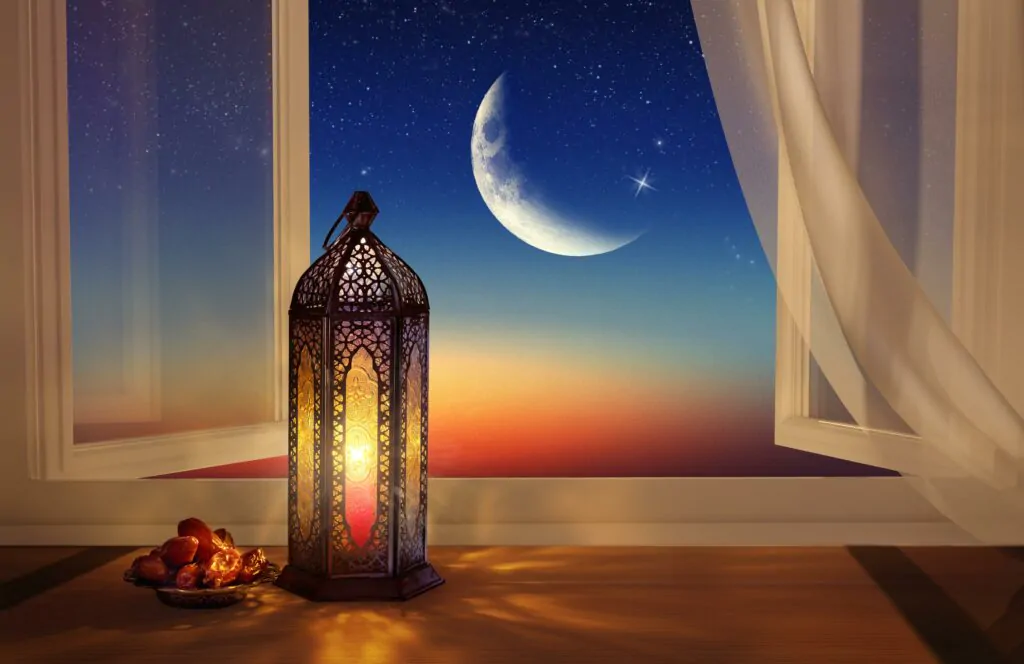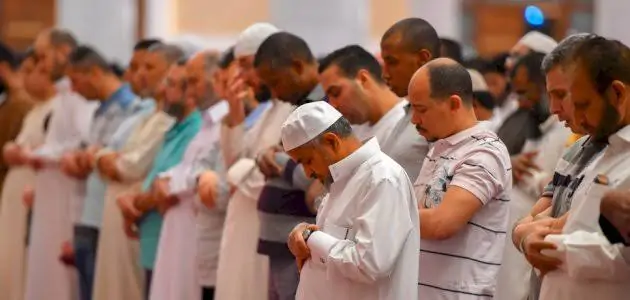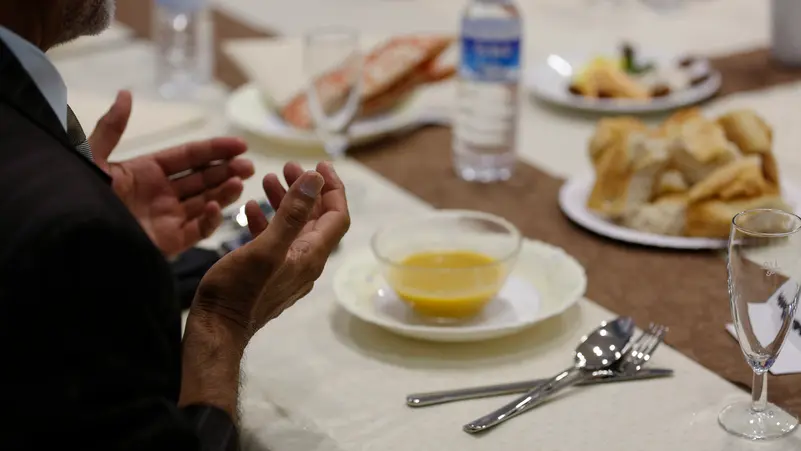What is Ramadan? And What Do Muslims Do During This Month?

Ramadan is a rather special month in the Islamic world, as the ninth month of the islamic calendar, it begins and ends with the appearance of the crescent moon. The Muslim calendar year is shorter than the Gregorian calendar. The holy month begins 10–12 days earlier each year, allowing it to fall in every season throughout a 33-year cycle. Making it an annual celebration for muslims around the world. The “Night of Power” (Laylat al-Qadr) is commemorated on one of the last 10 nights of Ramadan, many muslim scholars claim it is on the 27th night – the same night God revealed the holy Qur’an (book of Islam) to Prophet Muhammad “as a guidance for people.” However, its exact date is unknown.
Muslims all over the world wait for Ramadan every year and look upon it as a time of practicing religious rituals such as Tarawih prayers (extra night prayers),and it goes without saying that fasting from dawn till sunset is the same ritual of the holy month. Social traditions play a significant part of Ramadan. The month brings together not only families and friends but also people who don’t know each other, gathering on one table and having iftar (sunset meal after breaking fast) . It is a great time for people to raise one’s spirituality and become closer to God.
What Do Muslims Do During This Month?

Praying Tarawih
The month of fasting “sawm” in Arabic. Muslims fast every day during this month from dawn till dusk having only two meals during the day: breakfast or “Iftar” and pre-dawn meal or “Suhoor”. Although ṣawm is most commonly understood as the obligation to fast during Ramadan, it is more broadly interpreted as the obligation to refrain not just from food or drink but also from all worldly interests. Moreover, to mentally be one’s best self by spreading kindness, good deeds and concentrating on spiritual enhancement. Known as “the month of mercy”, muslims believe the doors of heaven are open and the doors of hell are closed during Ramadan, devils are chained up, and every good deed is doubly rewarded by God during this holy time.
Social activities during Ramadan

Iftar together is traditional in Ramadan
Added to the religious rituals of the month, social activities play a significant role, social gatherings over iftar or suhoor (pre fasting meal) eating and/or praying together.
Here are some important vocabulary related to Ramadan:
| المعنىMeaning | الكلمةWord |
|---|---|
Fast | صام، يَصوم |
Pray | صَلَّى، يُصَلِّي |
Have breakfast | أفطر، يُفْطِر |
Have Suhoor | تَسَحّرَ، يَتَسَحَّر |
Visit | زارَ، يَزور |
Gather | اِجْتَمَعَ، يَجْتَمِعُ |
Give charity, donate | تَصَدّقَ، يَتَصدَّق |
Invite | دعا، يدعو |
Greet | عايَدَ، يُعايِد |
Nouns/ verbal nouns:
Fasting | الصَّوم، الصِّيام |
Breakfast | الإفْطار |
Pre-dawn meal, suhoor | السُّحور |
Visit | الزّيارة، الزّيارات |
Meeting | الاجْتماع، الاجتماعات |
Charity, Giving charities | الصّدقات،
التَّصَدُّق، الصَّدَقة |
Invitation | الدَّعْوة، الدعوات |
Greeting | المُعايَدة، المُعايَدات |
Phrases
Happy Ramadan. Lit. Ramadan is generous. | رمضان كريم |
Ramadan Mubarak | رمضان مُبارك |
Response. Lit. God is more generous | اللَهُ أَكْرَم |
Best wishes | كُل عام وأنتُم بخير |
response | وأنتم بخير |
Invitation | الدَّعْوة، الدعوات |
Greeting | المُعايَدة، المُعايَدات |
Customs
In Ramadan, people tend to have different preferences and habits regarding food and drinks either for religious purposes or following tradition.
Some food and drink vocabulary:
| المعنىMeaning | الكلمةWord |
|---|---|
Dates | تَمر، بَلَح |
Dried fruit | خُشاف |
Kunafa | كُنافة |
Qatayef | قَطايف |
Sobia | سوبيا |
Carob | خَرّوب |
Qamar al-Din | قَمَر الدين |
Liquorice | عِرقسوس |
Tamarind | تَمر هِندي |
As we have noticed previously, most types of food and beverages have no literal nor direct translation because they have originated among Arabs and Muslims.
There are some other traditions people take part in, such as decorating their houses and balconies with colorful light bulbs and ornaments and even in the streets!
Neighbors gather to decorate their streets using symbols identifying Ramadan such as the lantern “Fanoos”, models of the “kaaba” and mosques, all of which add to the festive vibes of the holy month.
In more local areas, a man volunteers to wake people up for ¨suhoor¨ ,Called El “mesaharaty”. He uses a little drum and sings some Ramadan songs in the streets. Kids like to give him their names so he would specifically call them when he sings. At the end of the month, some people give him money as a reward for the job he has done during the nights of Ramadan.
Other vocabulary:
| المعنىMeaning | الكلمةWord |
|---|---|
Lantern | فانوس |
Breakfast cannon | مَدْفَع الإفْطار |
Decoration | زِينة |
Mesaharaty | مِسَحَّرَاتي |
Zakat “obligatory donation” | زَكاة |
Rites | شَعائِر |
Rituals | طُقوس |
Habits/ customs | عادات |
Traditions | تَقاليد |
Why fasting?

Fasting makes us feel the obligation to help those who are in need
The act of fasting allows the individual to understand the pain and suffering of millions around the world who live their lives in poverty and famine, leaving the participant feeling more grounded and grateful for all that God (Allah) (SWT) has given them. It is also a time to reflect upon oneself, the good and bad deeds one has done throughout the year, in order to finish the 30 days of fasting, fresh and a better version of oneself. The act of fasting is also a mental and spiritual act. Moreover, fasting makes us feel the obligation to help those who are in need. At the end of the month, “Zakat” donations during Ramadan are made and then Eid al-Fitr is celebrated with family and loved ones.
In the light of these facts about Ramadan, we will leave you with some links for useful videos about it:
- Ramadan song in MSA “Fusha”:
- Ramadan song in ECA “Egyptian dialect”:








